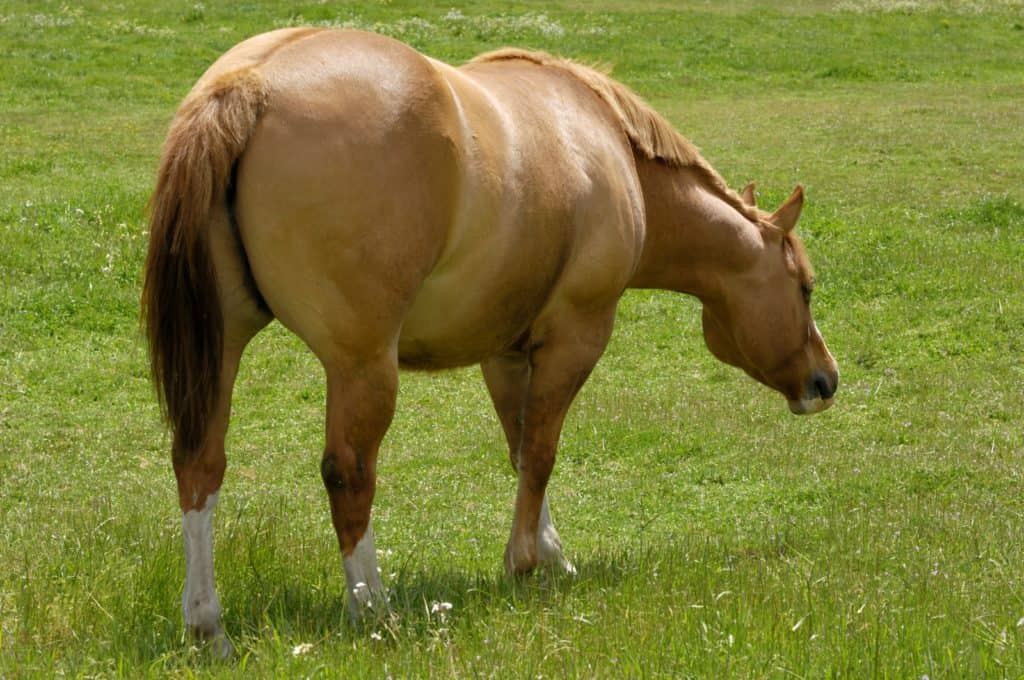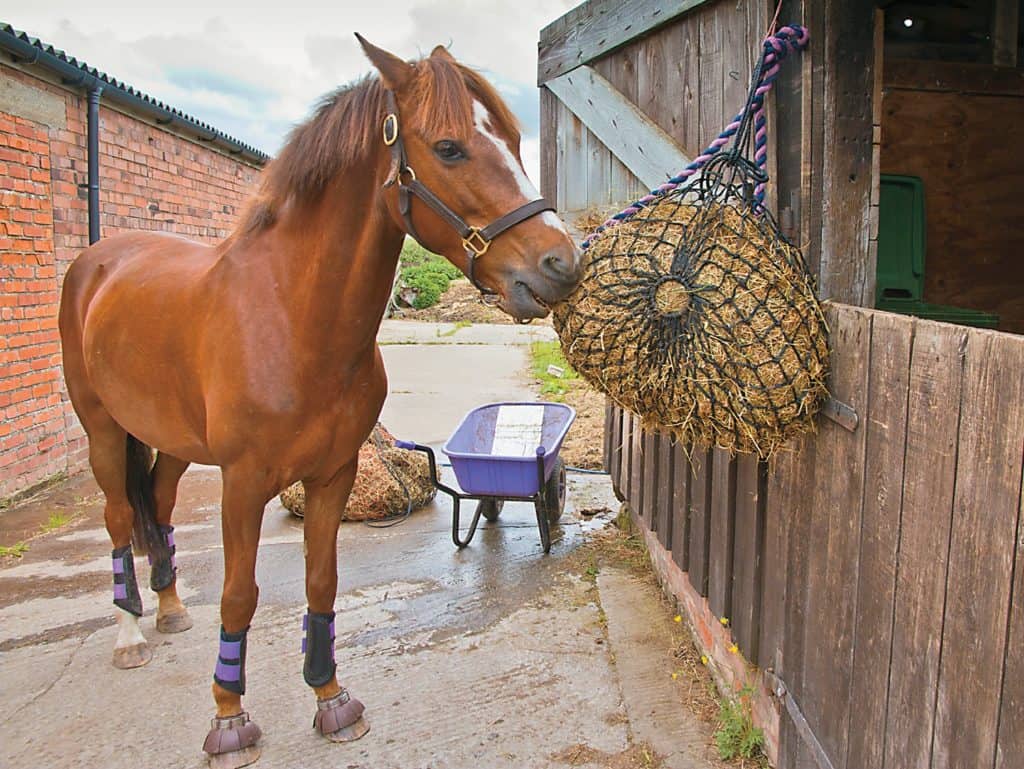
Weight Loss for Hefty Horses
Learn how to help your overweight horse shed pounds in a safe and healthy way.

Learn how to help your overweight horse shed pounds in a safe and healthy way.

What is the best way to test for vitamin E deficiency, and how often should you test your horse? Dr. Carrie Finno of the University of California, Davis, offers advice.

Few horses are lucky enough to have constant, year-round access to fresh, green grass, which provides the best natural source of vitamin E. This powerful antioxidant supports muscle and nerve health. Is your horse getting enough? Learn about horses’ vitamin E requirements and how to prevent deficiencies during this live event. Sponsored by Kentucky Performance Products.

With people staying home during the COVID-19 pandemic, more horse owners seem to be seeking nutrition advice online.

Chia is calcium-rich, but inverted calcium-to-phosphorus ratios can cause horses big problems. Here’s what to know.

Dental care is an important part of keeping a horse healthy and happy throughout his life. Learn about common tooth problems and regular dental care in this slideshow.

Learn about steps veterinarians can take to figure out why a horse is losing weight.

Feeding and managing horses that gain weight easily can become a challenge. Learn about ration balancers and how to craft a diet for the easy keeper with these free resources.

Getting to the root of a less-than-ideal feeding regimen requires evaluating the horse, the human, the forage, and the grain or concentrate.

Selenium is required in very small amounts in the equine diet, but it has an important role in maintaining horse health.

While we might enjoy sneaking our horses peppermints and other sweet treats, we need to understand how it can reinforce good or bad behavior and how it fits into your horse’s dietary scheme.

Discover the differences between these two trendy, omega-3-packed seeds that can be used to supplement equine diets.

Horses with conditions such as muscle or metabolic disease might have special hay needs to stay healthy.

An equine critical care specialist shares advice for dealing with a colic while waiting for your vet.

Two leading researchers explain insulin’s effects on the body and how to manage the insulin-resistant horse.

Previous studies have shown horses are more reactive on starchy diets but not the reasons behind the nutrition-related behavior. A Scottish researcher discovered that the gut-brain axis might be the link.
Stay on top of the most recent Horse Health news with
"*" indicates required fields